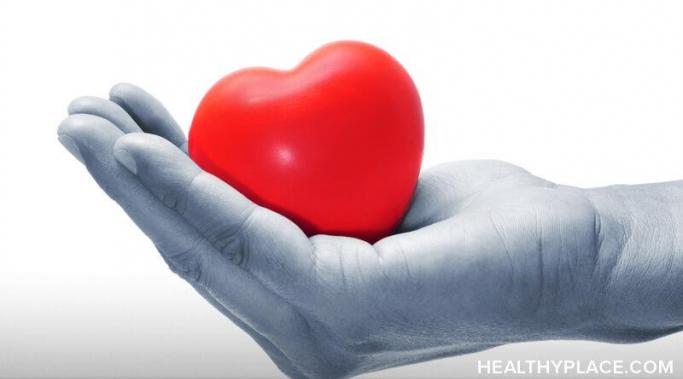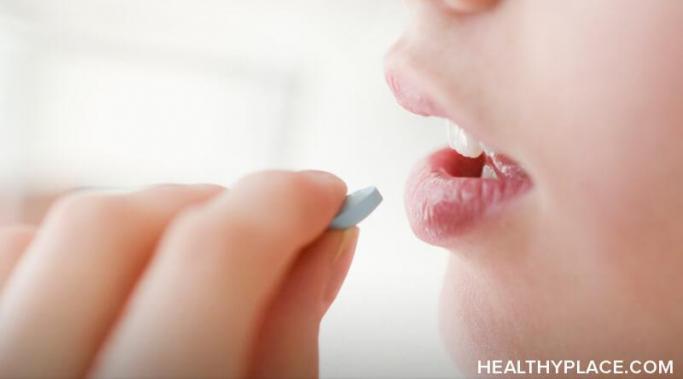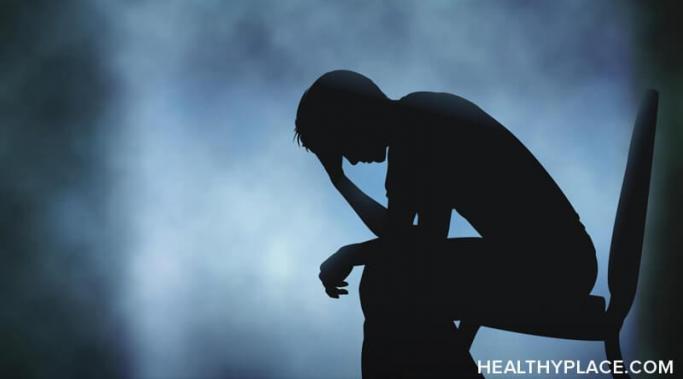It is with a waterfall of tears that today I tell you that my time writing "Breaking Bipolar" has come to an end. HealthyPlace is moving in a new direction, and so, after 14 years, my work here is done. And while I find this devastating personally, today, I would like to focus on 14 years of victories for me and for this blog.
Breaking Bipolar
Many times during treatment, you may have to consider whether to change your bipolar medication. This is a complicated question and a personal one. The answer varies from person to person. If you're considering changing your bipolar medication, here are some things to think about.
I recently started wondering if self-compassion can help with bipolar disorder. This is because I'm in a dialectical behavior therapy (DBT) group, and people there seem crazy about it. It's also something I tend not to show myself. I have my reasons for being that way, but I'm reconsidering whether self-compassion can help with bipolar disorder.
I've often felt left out of life. In fact, I often say I'm an alien. It's not because I'm green or have bug eyes; it's because my experience of life is so radically different from that of your average person. I'm obviously not the only one. People with serious mental illness (or other chronic illnesses) often feel left out of life. I'm going to take a look at why this is and how we can feel more included.
When I started seeing a psychiatrist, he said I would get back to life before bipolar disorder (well, I was diagnosed with just depression at the time). He focused on it a lot. He wanted to know how I was doing compared to what I was like "before." But there are so many problems with that thinking. I'm not sure you can ever get back to life before bipolar disorder.
Ghosting can affect a person's depression. And while people with mental illnesses like bipolar are known to sometimes ghost others, we, ourselves, get ghosted too. So, what happens to a person's depression when they're ghosted?
Once a person has experience with a person with bipolar disorder, they may assume that they will always have a similar experience with others who have bipolar disorder. In other words, a person may paint everyone with bipolar disorder with the same brush. If the first person with bipolar disorder they have experience with is very intelligent or creative — they may think all people with bipolar are. On the other hand, if their experience with a person with bipolar disorder was very negative, they may assume that all their future experiences will go the same way. Generalizations of any group don't help us, however.
I should be able to fix my own depression -- or at least that's what the world keeps telling me. We have a lot of euphemisms for it: pulling yourself up by your bootstraps, walking it off, turning that frown upside down, and so on. And the Internet is full of New Age gurus (and lay people) claiming to know the secret of how to do it -- just buy my book and wave your depression goodbye. But if everyone says it's possible, why can't I fix my own depression?
I've recently undergone a routine change with my bipolar disorder. This has been harder to adapt to than you might think. I find doing the same thing every day has a protective effect on bipolar disorder, so removing that rhythm can do the opposite. A change in my bipolar routine has officially thrown me off my game.
Waiting for depression to pass is interminable, but sometimes it's the only thing to do. In bipolar disorder, what goes down must come up -- at some point, anyway. The trouble is, no one knows when that's going to happen. There can be a lot of waiting for depression to pass in bipolar disorder. I hate it.









